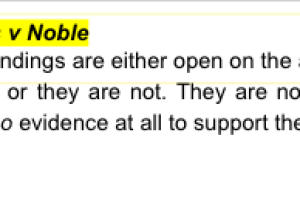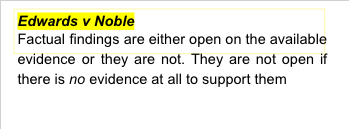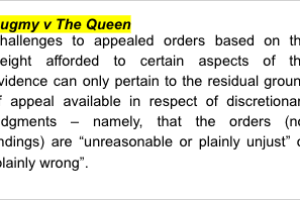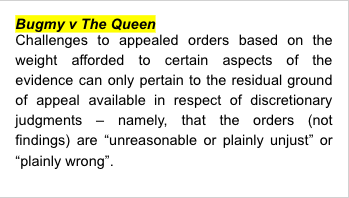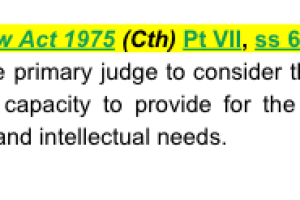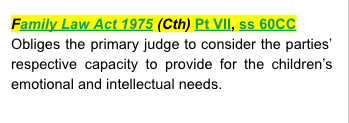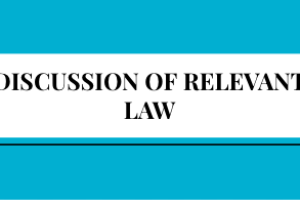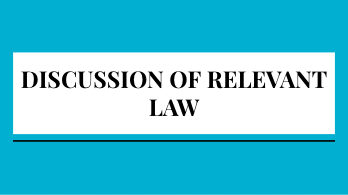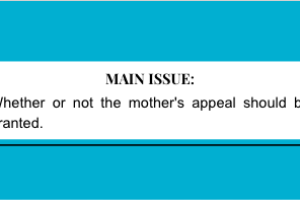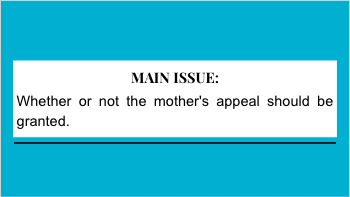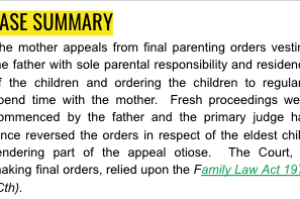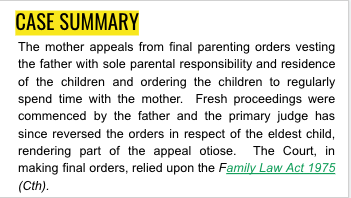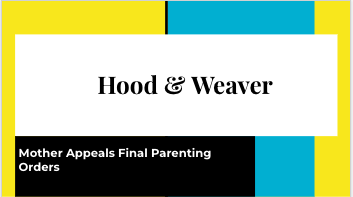- · 4780 friends
Mother Appeals Final Parenting Orders

Hood & Weaver [2022] FedCFamC1A 123 (5 August 2022)

The mother appeals from final parenting orders vesting the father with sole parental responsibility and residence of the children and ordering the children to regularly spend time with the mother. Fresh proceedings were commenced by the father and the primary judge has since reversed the orders in respect of the eldest child, rendering part of the appeal otiose. The Court, in making final orders, relied upon the Family Law Act 1975 (Cth).

Facts:
The parties commenced a relationship in 2013, at which time the eldest child was two years of age. The two youngest children were born in 2015 and 2018. During the parties’ relationship, the mother was the children’s primary carer. The parties’ relationship broke down in mid-2018 and, by September 2018 at the latest, the father had vacated the family home. The children thereafter lived primarily with the mother and spent time with the father each alternate weekend, which consensual arrangement endured for more than a year.
The father later withheld the two youngest children from the mother and she withheld the eldest child from him. In April 2020, the mother commenced proceedings under Pt VII of the Act. Very soon afterward, interim orders were made for the two youngest children to live with the father, but to spend time with the mother and the eldest child each week from Sunday morning to Tuesday afternoon. In September 2020, more interim orders were made with the parties’ consent for the eldest child to live with the mother, but to spend time with the father and the two youngest children each week from Friday afternoon until Sunday morning.
Her Honour determined the children should live with the father, essentially because: (a) the mother posed a risk of psychological harm to the children (at [124]); (b) the children are not at any risk of harm in the father’s household (at [193]); (c) both parties proposed a change to the existing residential circumstances (at [160]) and the children were sufficiently resilient to manage the changes they proposed. Fresh proceedings were commenced by the father within weeks of the final orders being made, after the mother withheld the children. He filed an Initiating Application on 21 February 2022 seeking the recovery of the two youngest children, which the mother resisted by filing a Response on 11 April 2022.
The primary judge heard and determined the parties’ competing interim applications for more parenting orders on 8 June 2022. In effect, her Honour kept intact the orders made on 10 February 2022 in respect of the two youngest children, but reversed the orders in respect of the eldest child. Pending further order, the mother has sole parental responsibility for the eldest child, who lives with her and neither spends time nor communicates with the father. The mother has separately appealed from those more recent orders, seeking that the fresh arrangements in respect of the eldest child apply to all three children.

Issue:
Whether or not the mother's appeal should be granted.

Applicable law:
Family Law Act 1975 (Cth) Pt VII, ss 60CC - obliges the primary judge to consider the parties’ respective capacity to provide for the children’s emotional and intellectual needs.

Bugmy v The Queen (2013) 249 CLR 571; [2013] HCA 37 - provides that challenges to appealed orders based on the weight afforded to certain aspects of the evidence can only pertain to the residual ground of appeal available in respect of discretionary judgments – namely, that the orders (not findings) are “unreasonable or plainly unjust” or “plainly wrong”.


Analysis:
The mother contends that the primary judge erred by accepting the expert’s evidence that the children will likely experience consistency and structure in the father’s home, for two reasons: first, the expert had no evidence about the children’s relationships with other members of the father’s household (Ground 2(a)); and secondly, the expert’s opinion was based, at least in part, on her unqualified opinion about the state of the mother’s mental health (Ground 2(b)).
The primary judge accepted the expert’s opinion evidence to the general effect that the “father’s household...offer[s] more consistency [to the children] than the mother’s”. The relevant finding was not that “the children will likely experience consistency and structure in the father’s home” as the ground asserts, but rather they were more likely to do so with the father than with the mother.
The expert conceded it was possible the children could be deleteriously affected by any dysfunction within the father’s home or by different styles of parenting. However, neither the cross-examination of the expert nor any other witness formed the basis for any submission that there actually was dysfunction or different styles of parenting deployed in the father’s home.
Conclusion:
The appeal fails for lack of merit. The Appeal is dismissed. No order is made as to costs.


